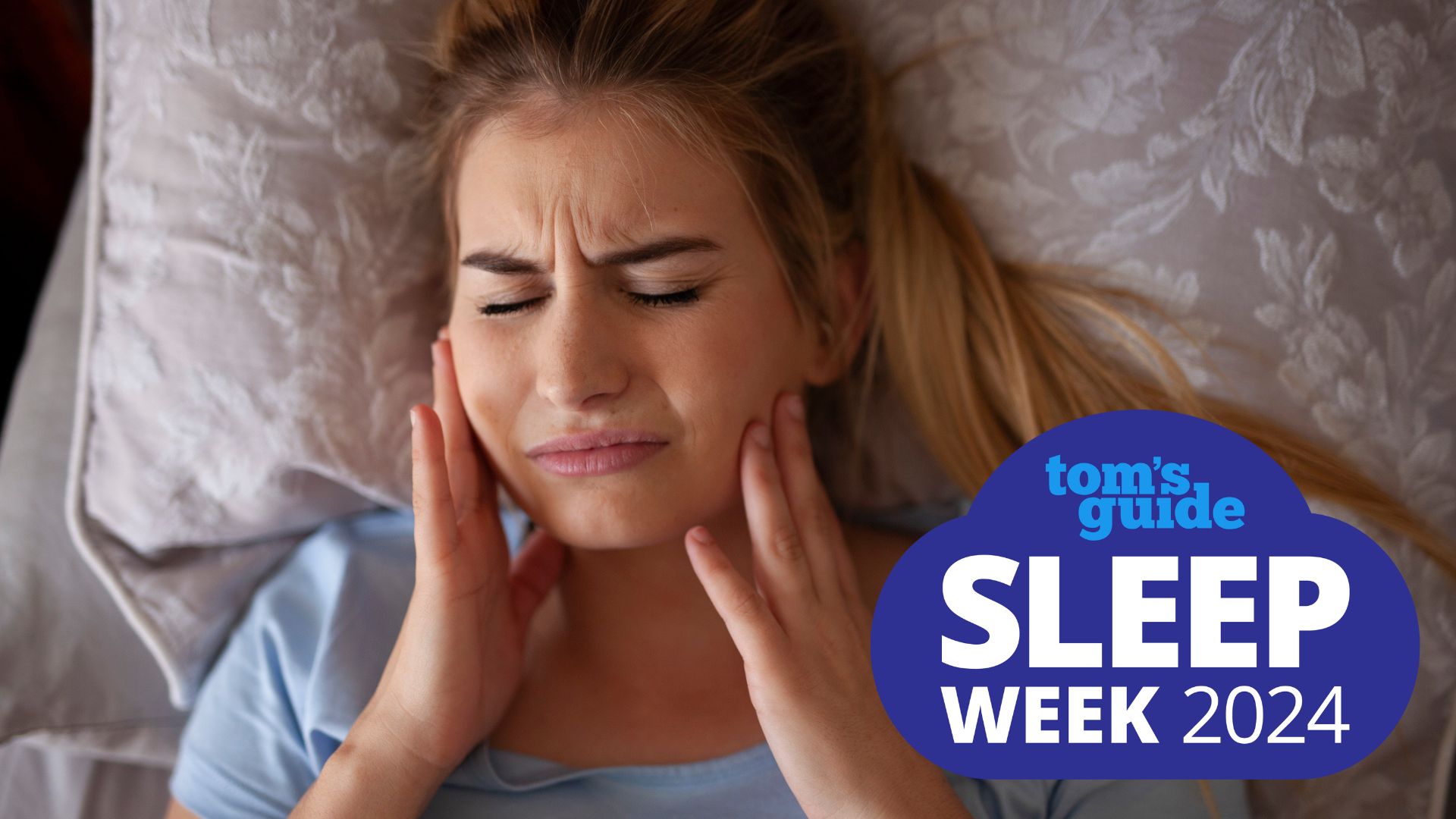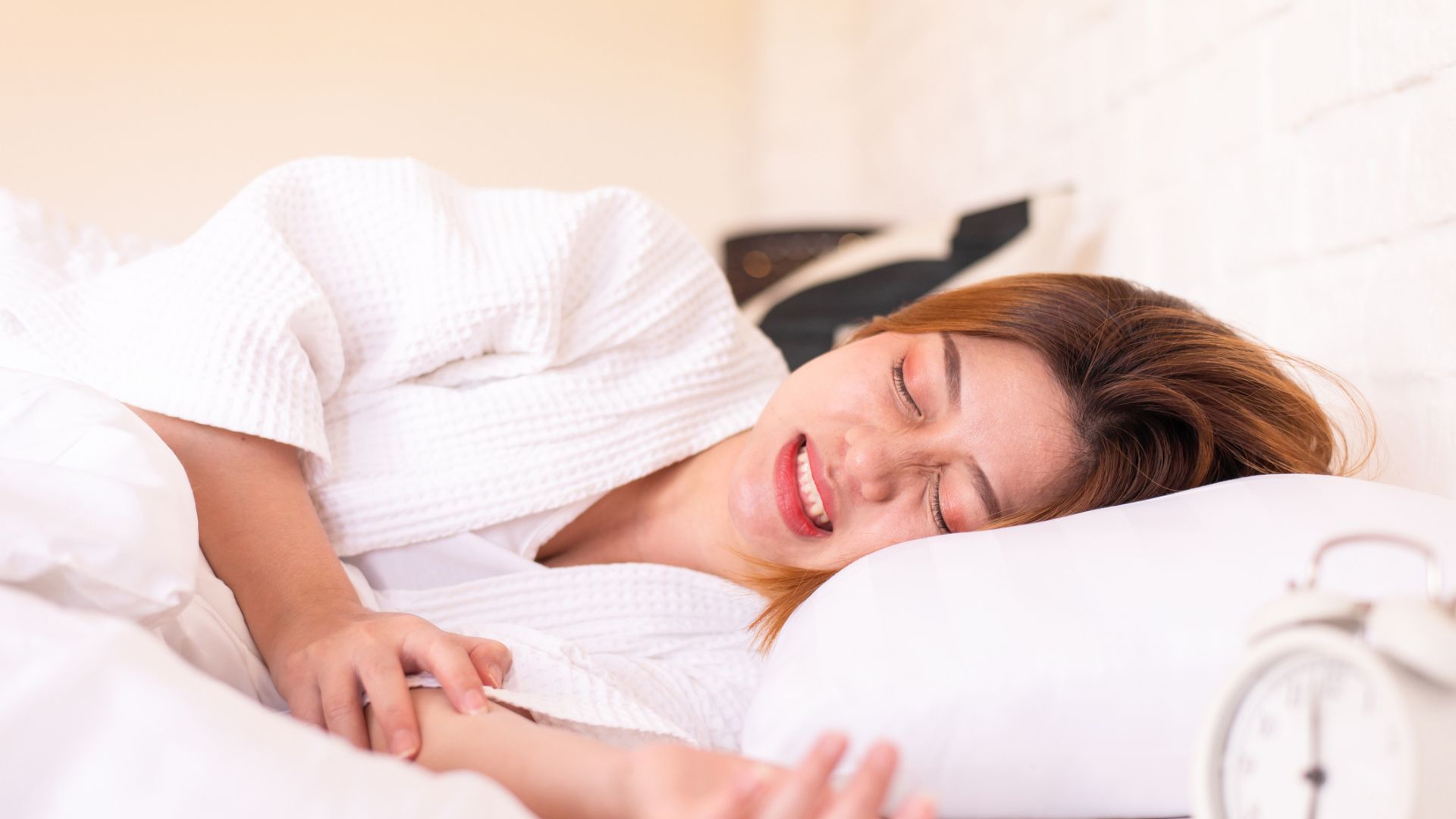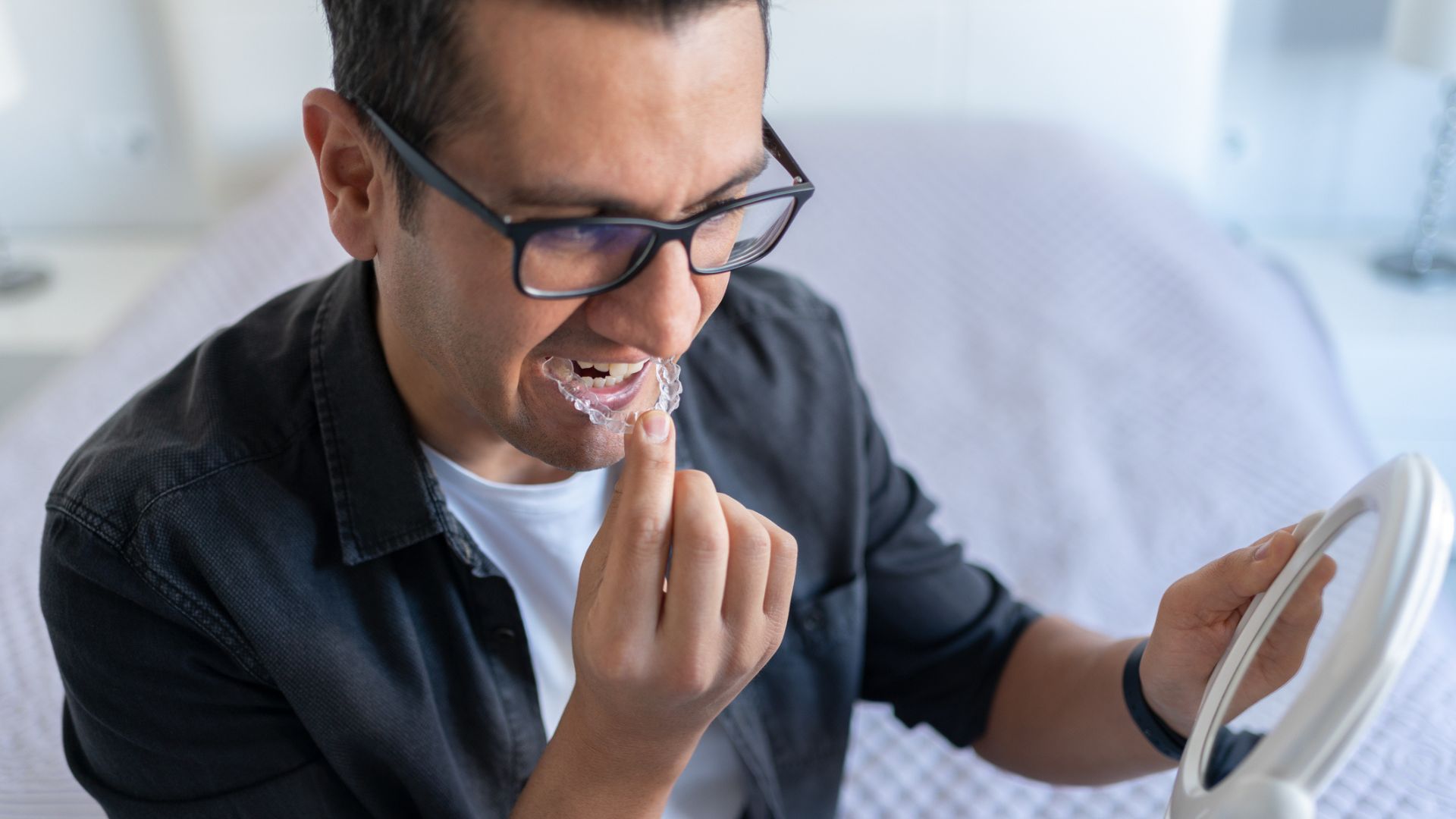
Teeth grinding, also known as bruxism, is when you grind your teeth or clench your jaw during your sleep. People who experience it are often unaware that they’re doing it, but teeth grinding can have a detrimental effect on sleep quality, as well as cause dental damage.
Bruxism is an involuntary, habitual grinding of the teeth. Sleep bruxism is when you involuntarily grind your teeth at night.
“Teeth grinding is almost always associated with stress,” says Dr Lindsay Browning, a chartered psychologist and neuroscientist. The good news is that a mouthguard worn at night can help protect your teeth, but the bad news is that won’t solve the root cause of the problem.
Sleeping on the best mattress for your body type may help, as a mattress that provides the right level of comfort and support will minimize any tossing and turning that may lead to tooth grinding. To coincide with Sleep Awareness Week 2024, we will walk you through what bruxism is, why you might be prone to teeth grinding, plus what you can do to manage the condition.
Why do I grind my teeth at night?
Bruxism is a condition categorized by the habitual grinding, clenching or gnashing of your teeth while you sleep. Many factors can contribute to bruxism, but stress is one of the leading causes.
Before the Covid-19 pandemic, approximately 31% of adults suffered from bruxism. However, google searches for teeth grinding spiked during the pandemic, with some dental surgeries reporting three times as many patients seeking treatment for bruxism.

Those who grind their teeth may not be aware that they’re doing it, and are often alerted to their nighttime habit either by their dentist or someone else. Depending on the severity and frequency, bruxing can cause significant dental damage, as well as sleep disruption.
“It's not just about waking up in the morning with an ache in your mouth, it can disrupt your sleep,” says Dr Browning.
Common causes of teeth grinding
Bruxism can occur at any age and any stage within your life, but it is often linked to the following:
- Stress
- Anxiety
- Snoring
- Sleep apnea
- Certain medication
- Irregular sleep patterns
- Misaligned bite
Teeth grinding is closely related to sleep apnea, with an estimated 33% - 54% of those with Obstructive Sleep Apnea also suffering from bruxism. While there is certainly a link between bruxism and sleep apnea, there is conflicting research over whether one condition is responsible for the other. However, studies agree that teeth grinding is linked to the micro arousals (wakeful periods) experienced with sleep apnea.
Teeth grinding is also prevalent during childhood, with as many as 50% of children experiencing bruxism. However, this number drops to around 8% once they reach middle adulthood.
Symptoms of teeth grinding
Often, those who experience bruxism are alerted to the condition by someone else, whether it’s someone sleeping in close proximity or their dentist. However, there are certain symptoms that indicate that you have been grinding your teeth in your sleep. They are as follows:
- Headaches
- Jaw and neck pain
- Dental damage
- Tooth erosion
You may not grind your teeth every night, and will only grind your teeth for seconds at a time. However, the pressure that you place on your teeth is enough to slowly erode away at your teeth, as well as causing a buildup of tension in your neck, shoulder and jaw, resulting in headaches.
How to manage your teeth grinding
Dental guards, or mouthguards, prescribed by your dentist can help protect your teeth from bruxism. “Ideally go to a dentist and get one professionally,” advises Dr Browning. “Not only will you not wake up with that clenched jaw, but you will protect your teeth and also sleep better, because you won't be disturbed by this gnashing of your teeth, which can be disruptive to your partner.”

However, stress management is also required in order to treat the root cause of your teeth grinding. A relaxing nighttime routine can help alleviate stress, helping to reduce bruxism instances.
Additionally, Dr Browning recommends taking a look at your lifestyle and seeing if you can make any positive changes to your day in order to influence how you process stress during the night. "Anything you can do to reduce stress in your life during the daytime will help," says Dr Browning.







